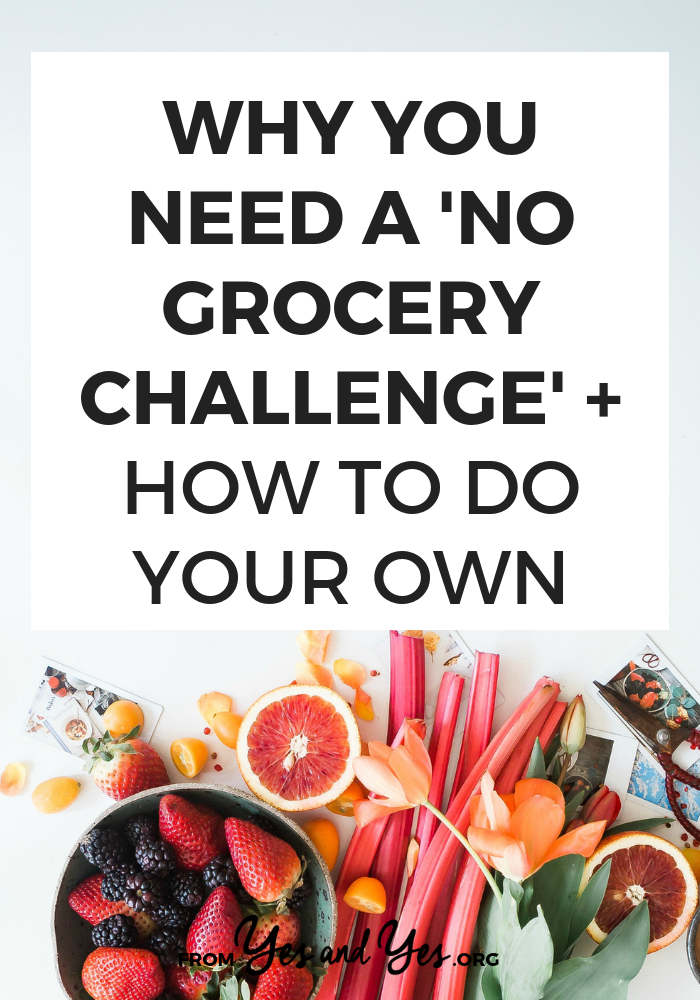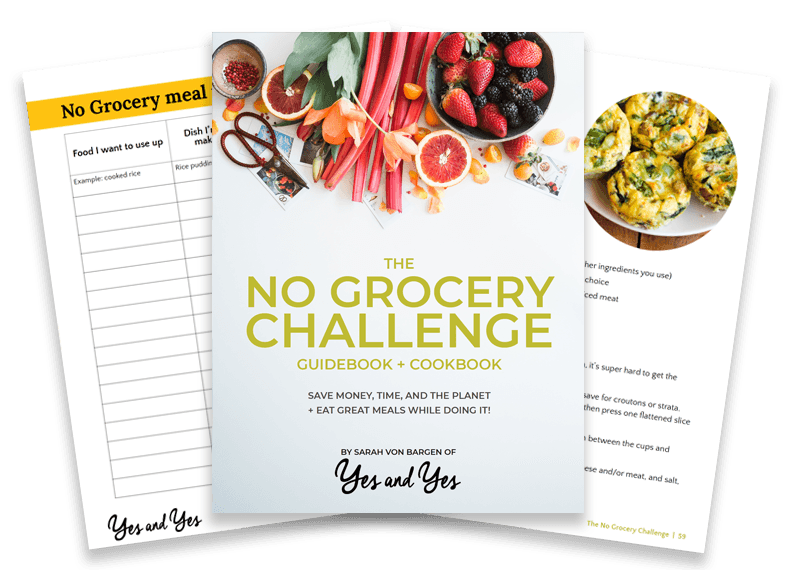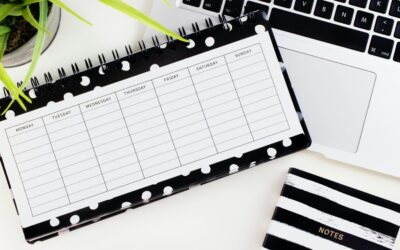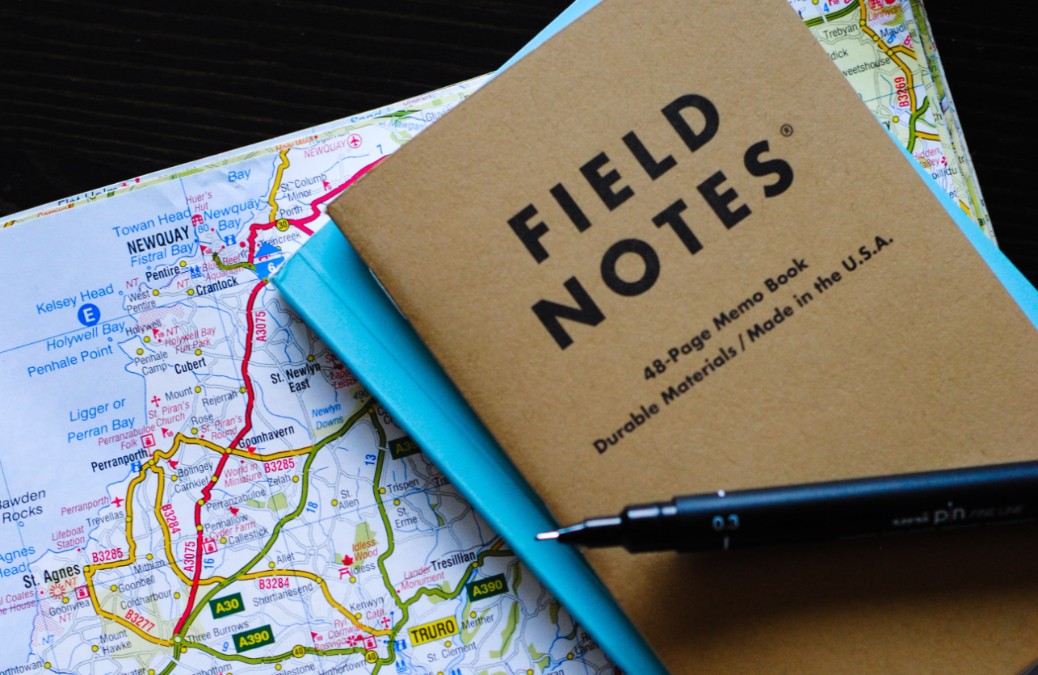
“You’ve got to be kidding me.”
“HOW DID YOU MAKE THIS??!!”
“You’re going to tell us how you did this, right?”
The DMs pinged into my inbox and I squinted at my screen in confusion. What was all the fuss about?
Over the last week, I’d been cobbling together meals from my pantry and fridge, putting off grocery shopping because we were leaving for vacation.
I’d been hashtagging the experiment #nogrocerychallenge and amusing myself by making homemade croutons out of old hotdog buns and bacon fat I’d saved. I made a Mexican-inspired gazpacho to use up a bunch of vegetables and a cold Vietnamese-ish salad to finally get rid of those rice noodles.
After about 20 DMs politely demanding insight on the topic, I started writing.
And then I wrote some more. And then I wrote a lot more.
73 pages later, I’d created The No Grocery Challenge Guidebook + Cookbook: Save Money, Time and The Planet + Eat Great Meals While Doing It. Click here to download your copy so you can use all those Christmas leftovers!
Here’s why you should take your own No Grocery Challenge
You’ll save money
Actual fact: the average American family of four spends $1,500 a year on food they don’t eat. That’s a mortgage payment! Or a vacation! Or 300 lattes!
Let’s say you usually spend $80 a week on groceries, $320 a month. If you did a No Grocery Challenge one week each month, you could save $960 a year!
Also: Every time I go to the grocery store to “just quick grab something,” I leave with five other things. I run in to buy a 60-cent lemon and emerge with $22 worth of groceries. So if you can learn to visit the grocery store less, you’ll probably spend less overall because you won’t be seduced by the siren song of discounted cheese.
You’ll save time
Even just “popping to the shop down the street” is usually twenty-minute endeavor, when you factor in parking and standing in line. When you learn how to cook with what’s on hand, you’ll save yourself so many last-minute trips to the grocery store.
Also, many of us exchange our time for money. The more we work, the more money we’re paid. If you could reduce your grocery bill by $80 a month – depending on your salary – that could be the equivalent of one day’s pay.
You could take an unpaid day off, sleep in, go to the beach – and not feel it in your bank account!
You might discover new dishes that you like
It’s so, SO easy to fall into the rut of rotating through the same 10 recipes every few weeks – pizza, pasta, salads, tacos. Lather, rinse, repeat.
A No Grocery Challenge could be the nudge you need to finally figure out rice paper or whole shrimp or those spices your sister brought back from Thailand. The first time I did this, I discovered savory oatmeal! (I know that sounds weird, but it is SO GOOD and is now one of my go-to cold-weather breakfasts.)
You’ll build your cooking confidence
It feels so good to open the cupboard doors on any given weeknight, glance at what you’ve got, and know that you can throw together something easy, healthy, and delicious.
You don’t have to run to the store. You don’t have to page through five different cookbooks. You don’t have to engage in an hour-long “I don’t know, what do YOU want” conversation with your partner.
You know what you’ve got, you know what you can do with it, and you know that the end result will be awesome. Awesome!
You’ll reduce your carbon footprint
Unless you live in Hawaii, the pineapple that’s rotting in the corner of the fridge probably wasn’t grown down the street. Neither were the mid-January raspberries or bell peppers.
All of the above made their way to our grocery stores via planes, trains, and automobiles, consuming fossil fuels as they went. So when we don’t eat food that was grown thousands of miles away, we’re not only wasting food. We’re wasting all the fuel that was used to get that food to us.
Is a No Grocery Challenge just … eating from your pantry?
“Sarah, I don’t need an ebook to remind me to use up the pasta I have in my cupboard, THANKS.” <- I can hear you thinking this.
There’s actually a lot more to doing a No Grocery Challenge than that.
- How do you get the people in your life on board? Some people haaaaate leftovers
- How do you do this in a way that feels fun and creative, not boring or overly virtuous?
- How do you grocery shop in a way to leads to less food waste in the first place?
- Are you storing food in a way that makes it spoil faster?
- Are there recipes + cooking methods you don’t know about that would make your ingredients sing?
- How do you plan a NGC and actually follow it (instead of caving and ordering takeout?)
- Can you resuscitate that bagel/broccoli/bunch of celery so it’s almost good as new?
Here’s what you get with The No Grocery Challenge Guidebook + Cookbook
- 73 pages + dozens of building-block recipes you can customize to fit what’s in your kitchen
- Charts + tables to make planning your No Grocery Challenge a breeze
- Strategies to get the people in your home on board (even picky eaters who hate leftovers!)
- Advice on preventing food from going bad in the first place
- Tips on how to do this is a way that feels creative + fun (not boring and overly virtuous)
This is a great post-holiday gift to yourself, the planet, and your bank account. For the average reader, this ebook pays for itself in three meals! Click here to learn more.
As always, thank you so much for supporting Yes & Yes and the work we do here. It means so much to me!














This is a great challenge to take on – I often overbuy when I go grocery shopping! Thank you for the idea and tips!
Charmaine Ng | Architecture & Lifestyle Blog
http://charmainenyw.com
Sadly this is a lot harder for folks with dietary restrictions. I’m on a low histamine diet and I have to eat as fresh as possible, and even leftovers can make me sick. It stinks when so many money saving or time saving tips just aren’t possible due to an illness or disability.
Raise your hand if you immediately googled “savory oatmeal recipes”! Going to try some this week!
I think you’ll love them!
Thanks for creating this Sarah. Over here in the UK we face the very real possibility of disruption to the food supply chain next year following Brexit, so I’m keen to get better at meal planning and making sure my cupboards are well stocked in advance. So store cupboard recipes, particularly if they require no fresh ingredients are very welcome.
You might want to check out the work of Jack Monroe (https://twitter.com/BootstrapCook), a UK food writer and campaigner whose experience as a food-bank user prompted them to find very creative ways to make tinned goods into appetising and nutritious meals.
Oooh, thanks for the head’s up! Super interesting!